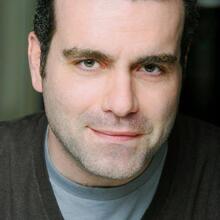Adrian Brody has the face of Buster Keaton and the bearing of Raskolnikov. He belongs to a time of grainy celluloid and out of tune pianos, a time when film wasn’t studied at universities and was primarily concerned with entertainment for the sake of entertainment. Somewhere in between those days of the Nickelodeon, which Brody evokes, and the megaplex era in which we currently reside, film began to take itself too seriously, or not seriously enough. Rare is the film that manages to exist within the tension of commodity and artistry. “The Brothers Bloom,” in which Brody stars, is one such film.
I like to blame it on the French or the 1960’s; those two are always good go-tos when searching for the root of the corruption infecting Western culture. Of course it’s not that simple. Still, the establishment of the French New Wave in the early 60s is a good place to start when trying to locate the exact moment in which film in general, and American film in particular, began to take itself so darn seriously.
Mind you, this is not necessarily a full-blown critique, as many wonderful films over the past half century have flowed from La Nouvelle Vague. It was the significant impetus in lifting film out of the realm of the purely commodified and into its rightful place as a legitimate art form. But something was lost along the way: suddenly it seemed that movies could only belong to one of two categories: those which were good for you (read: “art”) and those which were not (read: “commercial”).
It was not always so. At one time films were both entertaining and also artistic. The films of Keaton, Chaplin, Griffith, to name just a few, were compelling, humorous and entertaining on their own merits while also stylish and innovative without ever being self-conscious. About ten minutes into “The Brothers Bloom,” while encountering my own delight, I recognized the glorious communion that occurs between those who love to entertain and their audience.
The titular characters of “The Brothers Bloom” are conmen: one enamored with the life of the grift, the other wanting one last shot at redemption. Set amidst numerous soft hued European locales in an indecipherable era, the film follows the lives of Bloom (Brody) and his elder brother Stephen (Mark Ruffalo) as they grow from criminally prodigious delinquents into sophisticated conmen capable of pulling off incredibly complex schemes entailing an innate understanding of human nature and psychology.
The story opens on Bloom as he embarks on what he hopes will be his last con before going straight; the scheme consists of attempting to bilk millions of dollars from a socially maladapted heiress played by Rachel Weiz. The film follows the formula of the hundreds of conmen movies that preceded it as mistakes are made, a villain named Diamond Dog (Maximillian Schell) enters the fray, love ensues and nobody can figure out just exactly who’s conning who.
But for “The Brothers Bloom” the play’s not the thing, at least the screenplay isn’t. Rather, it is the visual that takes priority of place, not only in the idyllic shots of the various European venues, but also in the players themselves who all appear to have escaped from a Life magazine portrait from the dustbowl era. Brody, the moral compass of the film, has not a shred of the contemporary about him, his features seemingly culled together from the leftover shapes of Picasso’s “Guernica.” He provides the perfect yet vulnerable foundation for the story of one man’s last grasp at hope. Of the four main performers only Ruffalo seems unable to entirely rid himself of the residue of the 21st century, while Weisz with her perpetually kohl-rimmed eyes is the perfect visual match for Brody’s troubled anti-hero and handles the role of the ditzy heiress with aplomb.
However, it is Rinko Kikuchi who steals the show in the role of Bang Bang, the brother’s inexplicable sidekick. Bang Bang has approximately two lines of dialogue throughout the entire film, one of which is “Campari,” the other of which cannot be written in a Catholic publication or any reputable publication for that matter. If Brody’s appearance evokes Buster Keaton, Kikuchi’s performance channels the great Chaplin himself. Kikuchi is an imp of the first order; she manages to turn even the simple act of placing a piece of paper on a table into a work of comedic mastery.
Kikuchi’s performance underlines what is so refreshing about “The Brothers Bloom,” that is, the return to light comedy. In the past decade comedic cinema have been dominated by the likes of Will Ferell, Jack Black and Seth Rogan; and while no one has appreciated their work more than this reviewer, it takes a film with such a deft touch as “Bloom” to remind one of just how intensely orchestrated and laborious for both performer and audience member current comedies can be.
“Brothers” is not perfect: the restraints of caper narrative insist upon multiple plot twists to keep the audience, and the other characters, guessing. Such devices wind up constricting the loose and easy feel of the film. In the end, the audience is left wondering if perhaps they could have done without one or two false endings. This is a shame: the director’s insistence upon maintaining the integrity of the narrative genre undercuts the stylistic ease that is the heart and soul of the film. Ultimately it is this airy joy and heartfelt affection for movies that shines through “The Brothers Bloom” and leaves its audience both nostalgic for an earlier kind of film and hopeful for the future of moviemaking.









Jake,
Well written article-makes me want to go and see the movie. If you see Ryan Dunn tell him
i said hello and want to know when he is coming back to visit us at st. agnes in sf.
namaste frank